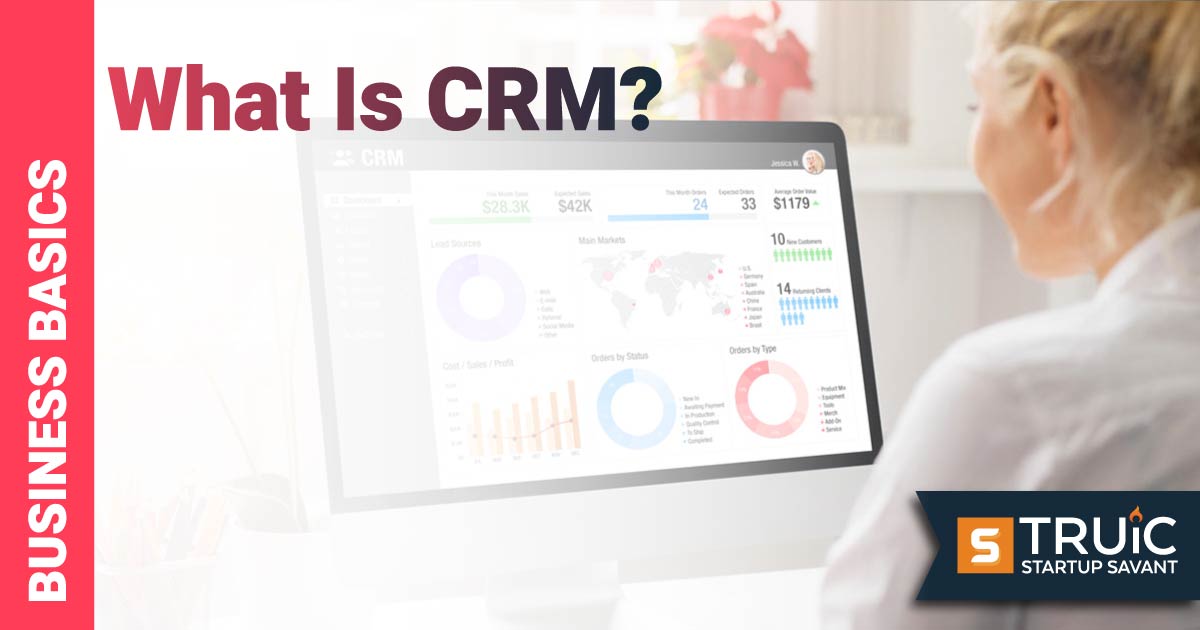9 Best Salesforce Competitors and Alternatives for Startups 2024

Last Updated: By TRUiC Team
Salesforce is a cloud-based platform gaining leverage against its competitors in the automation sector. The platform provides various features, such as customer interaction tools and self-managed multitasking, designed to fit the needs of sales teams and marketing professionals. But, unfortunately, it may not be the right fit for some startups.
Read on about the top Salesforce competitors and alternatives, as well as crucial details about each solution.
Recommended: Get started with Salesforce today.
Top Salesforce Alternatives
Salesforce is undoubtedly one of the leading CRM platforms on the market today. However, it may not be the ideal solution for every business, especially smaller startups and organizations. Salesforce offers robust features and customization, but the complexity can be overwhelming for teams that need more simplicity. Additionally, the costs may deter growing startups and SMBs with limited budgets.
That's where these Salesforce alternatives come in. The options below provide excellent functionality, ease of use and flexible pricing suitable for a wide range of needs and business sizes.
1. HubSpot CRM
Our top Salesforce alternative pick is HubSpot, which enables businesses with growth potential to optimize their relationships with leads and customers. The software unifies team strategies and drives conversions through marketing, content management, and operations tools. Additionally, it allows users to connect to integration apps that suit their workflow.
HubSpot automates data entry, allowing you to create remarkable customer experiences by improving your engagement. You can also sync all of your content interactions within a specific timeline. This method creates a single source for sales teams, ensuring they connect all apps and other crucial automation elements correctly.
Many customers have rated HubSpot superior partly due to its AI features, helping businesses increase their sales and customer interactions and base effectively. They also give HubSpot an advantage over its competitors as one of the best CRM software alternatives. While HubSpot is considered pricey, it provides three popular paid plans: Starter for $45/month, Professional starting at $450/month, and Enterprise for $1,200/month. In addition, you can personalize your sequences, enable conversation intelligence, customize hierarchical teams, and implement streamlined B2B buying options as a premium subscriber.
You can learn more by reading our HubSpot CRM review.
2. Monday CRM
Monday is one of the most popular systems in the automation technology industry. The customer data tracking platform allows sales teams to manage sales while minimizing traditional system implementations and repetitive actions.
Simple customization options, comprehensive navigation, reliable functioning, and discount incentives are several Monday qualities that HubSpot rarely provides to its loyal customers. The Monday work OS, which helps synchronize and streamline work operations, is another benefit. You can easily access your dashboard features despite Monday’s minor beta issues.
If you want exclusive access and perks on a budget, Monday offers inexpensive plan fees from $8–$16 monthly ($96–$192 annually), with the lowest price for the standard package and the highest cost for the advanced plan option. You can receive unlimited project storage, automation processes, and round-the-clock technical resources.
You can learn more by reading our Monday CRM review.
3. Freshsales
Freshsales is a CRM solution for sales teams to manage client interaction skills and transactions. Startups and established companies can also benefit from Freshsales by arranging their industry verticals using its cloud-based functionalities.
The platform offers three subscription options for users to manage their monthly customer turnover: Basic, Pro, and Enterprise. Each plan ranges from $15/month–$69/month ($216–$828 annually) and includes unique functionality elements like transaction pipelines and automated digital communication.
Freshsales is a fantastic CRM for startups and individual entrepreneurs. The platform has exceptional features that give sales teams complete CRM functionality and budget packages they can afford, making it one of the best automation alternatives, although it emphasizes traffic-building and audience-targeting tactics.
4. Zoho
Zoho offers web-based, automated features to B2B businesses seeking centralized management options. The CRM provides services like first-level product development for newcomers, website creation with integrated hosting, accounting tools to track sales and revenue, and email hosting done directly on the platform. In addition, you can minimize privacy issues by collecting signatures, processing digital assets, and storing vital data for reference.
Zoho’s Standard, Professional, Enterprise, and Ultimate plans range from $20/month–$50/month ( $168–$624 annually). Additionally, unlike HubSpot, which only allows two subscribers per account, Zoho permits three additional subscribers and access to the Kanban, Canvas, and Tubular view types, contributing to its legitimacy as one of the best Salesforce competitors.
Another popular Zoho feature is its filter, which can display past virtual meetings, upcoming chat communication, or any other tasks instead of seeing an extensive list of your events simultaneously. Additionally, you can use your dashboard to track information and manage insights directly.
Learn more by reading our Zoho CRM review.
5. Pipedrive
Pipedrive is a CRM software that assists sales teams in various industries. Its cloud-based, multi-channel interface is easily accessible and enables transaction planning methods. Companies can expand their clientele and increase monthly revenue from sales through website visitor conversions.
Sales funneling and customer database management are two of Pipedrive's popular features. Both are essential for monitoring monthly product sales and establishing customer loyalty.
Pipeline's costs range from $14.90 to over $1,000, depending on the size of your team. If you can’t decide which plan is most suitable, consider contacting the sales department to find out which option is best. Furthermore, Pipeline is an excellent HubSpot alternative partly due to its pricing structure, which doesn’t surge from affordable to costly when switching from a basic to professional plan.
You can learn more by reading our Pipedrive CRM review.
6. Zendesk Sell
Zendesk Sell is an ideal software for small and mid-sized businesses looking to align sales and customer service teams. While the platform is known for its priority customer support, it also offers a highly-rated sales-focused CRM for startup owners and individual entrepreneurs, which enhances productivity and automates daily marketing and sales tasks. It allows you to observe your sales processes by creating custom pipelines suitable for your business.
With Zendesk Sell, you can get excellent integration with help desk software, useful reporting options, easy onboarding and team creation, and smart lists. You can also integrate a Gmail or Office 365 account.
Premium subscription options include Team for $19, Growth for $49, and Professional for $99. All plans provide customizable sales pipelines, email tracking with integration features, and solid APIs. You can also try Zendesk Sell before purchasing any of its plan subscriptions by signing up for a 14-day trial.
Learn more by reading our full Zendesk review.
7. Microsoft Dynamics
Microsoft Dynamics is a CRM and ERP program incorporating advanced analytics, cloud-based digital marketing, and network intelligence. The platform is an excellent choice for businesses that require a wider variety of CRM tools for more advanced, complex business intelligence automation.
One of Microsoft Dynamics' more popular features is its drag-and-drop schedule board, allowing you to quickly get assistance from a technician if you experience account issues. Also, you can integrate third-party features and tools into your CRM, managing network connections while traveling and integrating data from social media. With digital analytic support, you can get quality leads and a comprehensive understanding of the buyer’s journey. Other services include rich insights that can help give you important information about your sales, customer relationship growth, and marketing data.
Subscriptions in the Dynamics sales section are flexible because their features give you complete control over your dashboard, providing detailed information about your activities, sales opportunities, competitors, goals, and forecasts. You can choose between three plans: Sales Professional for $65/month, Sales Enterprise for $95/month, and Sales Premium for $135/month. One other plan focuses on relationship sales to help you increase your customer loyalty using transactional, affiliative, functional, and strategic tactics.
8. Insightly
Insightly enables sales, marketing, and project management through its unified dashboard. It also helps businesses improve their scalability and profitability by maintaining customer relationships and creating a solid stream of conversions.
With exclusive access to Insightly’s valuable tools, you can customize apps and manage your personalized dashboard to implement functions relevant to your tasks. You also have control over implementing multi-step business processes through workflows. Lead reports, email analytics, and user integration are three additional features Insightly offers to both free users and paid plan subscribers.
Three Insightly CRM pricing plans offer basic to advanced business intelligence features that enable you to build a clear view of your company’s structure and network interactions. The Plus plan costs $29/month, including prompt project delivery and collaborations. At the same time, a Professional subscription provides tools to help you sell productively, manage leads, get developer API support, and other customized support services for $49/month.
9. Bitrix24
Bitrix24 is a sales-based software with collaborative tools for managing tasks and initiating team communication. The CRM platform is designed to help teams, startups, and small businesses maintain their sales analytics using business intelligence (BI).
As a CRM solution, Bitrix24 enables you to create and share reports and contacts and segment your target audience easily with its AI features. You can also develop a steady workflow by distributing incoming connections among your sales reps and sending mass emails, initiating phone communication, managing task events, and organizing conferences through your Bitrix24 dashboard.
Bitrix24 offers a free plan suitable for subscribers who want unlimited access to its features. You can get leads, deals, contacts, and 5 GB of space along with a single sales pipeline. However, plan prices range from $49 to $199 to add 20-100 users. Unfortunately, Salesforce doesn’t provide its users with the same benefit.
Learn more by reading our Bitrix24 CRM review.
Ready to Implement a CRM for Your Startup?
Salesforce is the perfect CRM solution for sales teams due to its partner ecosystem and scalability, which are vital qualities that make it an excellent automation choice. Although the platform was established in 1999, it continues to grow and expand its customer base.
As one of the strongest Salesforce competitors, HubSpot has various implementation and automatic tools used by major brands besides new startups, making it one of the best CRM software alternatives. Its services are costly but receive more positive reviews than negative ratings because it has proven to be a leading platform that provides efficient CRM-based AI and BI sales tools.


